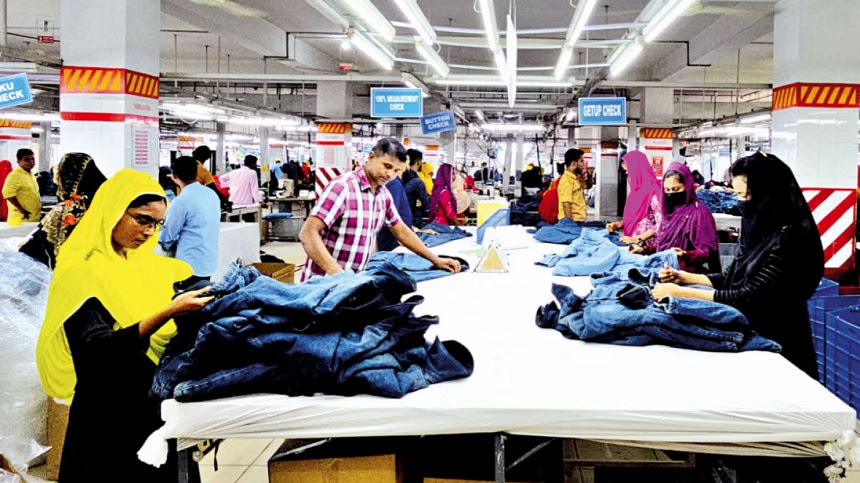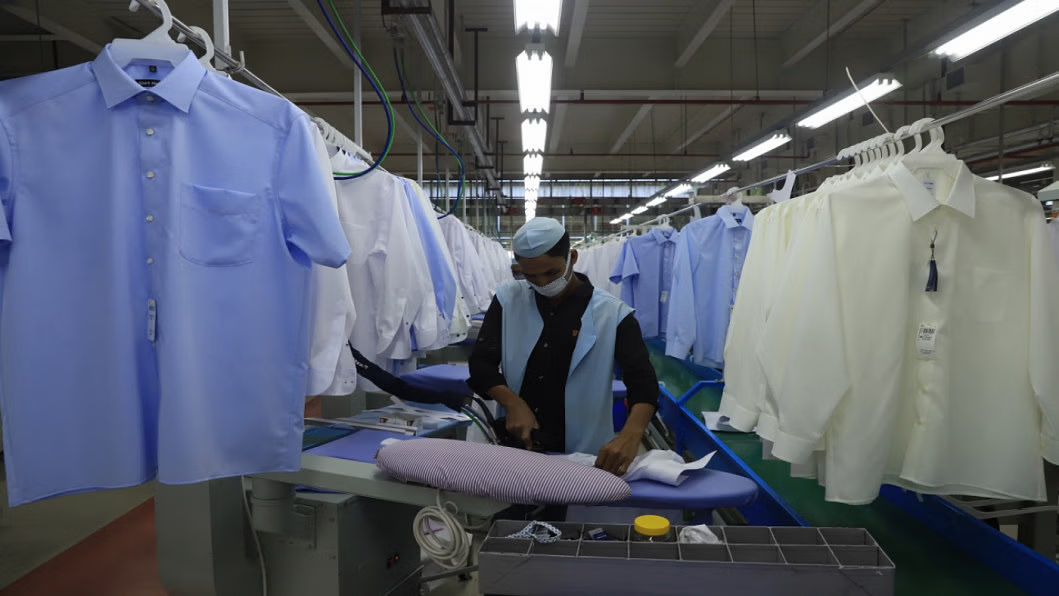After a resilient 2024, RMG manufacturers hope for a better 2025
Bangladesh’s readymade garment (RMG) sector hopes for a better 2025 after experiencing challenges and hurdles throughout 2024, redefining its resilience against all odds.
Industry insiders were optimistic that 2025 would improve as the global retail market was also improving.
Moreover, the country’s manufacturers took several measures, such as branding, product diversification and workplace safety improvement, which may expedite exports.
A better 2025
RMG manufacturers said that Western buyers began returning to Bangladesh as inflationary pressures eased in their respective countries.
Moreover, exports in 2024 also indicated a brighter 2025 as the trends remain positive despite fierce nationwide movement and political changeover.
Talking to Dhaka Tribune, Faruque Hassan, former president of the Bangladesh Garment Manufacturers and Exporters Association (BGMEA), said entrepreneurs are now looking for new markets and manufacturing value-added products.
“If we can reduce corruption and resolve customs and NBR-related issues, 2025 will be a good year for us. Inflation has started decreasing gradually in our major destinations, mainly in Europe and America,” he said, adding that the central banks of many countries are also reducing interest rates.
Consequently, there is a possibility of increasing sales in the retail market, which impacts work orders.
“Buyers are always confident in us due to circularity, green factories, workplace safety, etc. If the global economy turns around, we will benefit from it,” he also said.
Echoing similar sentiments, Mohiuddin Rubel, former director of the BGMEA, believed the Bangladesh RMG industry had potential for qualitative changes as it diversified product lines and explored new markets.
Significant investments in activewear and non-cotton products are emerging within the industry. Nevertheless, the ongoing crisis in sustainable energy has hindered new investments, causing previous investors to struggle, he added.
Rubel was optimistic that 2025 would mark a significant comeback for the global economy and the apparel business.
He hoped the nation would overcome the ongoing crises, particularly the challenges within the banking and financial sectors.
Challenges that need to be addressed
According to industry insiders, 2025 also holds several challenges for the country’s apparel sector along with enormous opportunities.
Faruque Hassan said Bangladesh’s RMG sector must solve domestic issues in order to seize the above mentioned opportunities.
“We have to ensure an uninterrupted supply of energy and fuel and increase worker efficiency. Moreover, the highest priority should be given to improving the law-and-order situation, ensuring that workers’ unrest does not occur, and ensuring political stability,” he added.
Mohiuddin Rubel said achieving sustainable improvements in industrial relations and establishing stable political and economic reforms are essential for restoring confidence as they dedicate themselves to the immediate future.
“I truly believe these improvements will take shape in 2025,” he added.
RMG resilience against all odds in 2024
The country’s apparel sector experienced a series of challenges and hurdles throughout 2024, redefining its resilience against all odds.
Industry insiders reported that several domestic issues have negatively impacted the sector this year, including a prolonged energy and fuel crisis, turmoil in the banking sector and recurring labor unrest in the major industrial hubs.
On August 5, a mass uprising led to the overthrow of the Sheikh Hasina government, forcing her to find refuge in India.
Additionally, the change in the political landscape also caused some negative impacts on the sector, including a disturbed law and order situation and ongoing labor unrest.
Faruque Hassan mentioned that while 2024 posed challenges, it also presented opportunities for business recovery as work orders increased alongside improved political stability. He highlighted the fact that international retailers and brands are returning to place work orders due to a rise in sales in the US and EU, indicating a rebound in retail sales.
The quota reform movement began in June and escalated into a mass uprising demanding the removal of then-prime minister Sheikh Hasina.
Curfews and internet outages enforced by the then-government exacerbated the situation in July and August. As a result, apparel manufacturers experienced deadline delays and many were forced to provide discounts to make up for delayed delivery.
Following the fall, on August 5, of the Sheikh Hasina-led government, an interim government led by Nobel Laureate Professor Muhammad Yunus took charge on August 8.
Labour unrest and onwards
Production and shipments were further affected by significant labor unrest that erupted in major industrial hubs on the outskirts of Dhaka in August, following the political change. This unrest continued until October.
The workers’ unrest disrupted the struggling local apparel manufacturing industry as workers abandoned production lines, blocked roads, and chanted demands for higher wages.
For several months, factories in major industrial hubs like Gazipur, Savar, Ashulia, Zirani and Zirabo were closed due to protests and vandalism.
Meanwhile, several manufacturers and union leaders labeled most of the protests illogical, fueled by vested interest groups, and a conspiracy against the sector due to its fast-changing nature.
However, workers, union leaders, and factory owners reached a historic consensus in September on a settlement to their 18-point demand.
In December, the government decided to increase the yearly wage increment of the RMG workers to 9% from the previous 5%.
Export earnings showed hope
Meanwhile, the country’s RMG sector has maintained a moderate export increase throughout 2024 despite obstacles, including worker unrest, an energy crisis, high lending rates, growing production costs, and—most importantly—a change in the political landscape.
Bangladesh earned $34.71 billion between January and November 2024, a 6.23% increase from the $32.64 billion earned during the same period in 2023, according to Export Promotion Bureau (EPB) data compiled by former BGMEA director Mohiuddin Rubel.
He said this reflects satisfactory year-over-year growth. However, considering the industry’s capacity, it is not significant enough.
“Thus, 2024 has proven to be a year rife with crises and challenges. However, I remain hopeful that 2025 will usher in a revival in global garment trade and improve our export performance,” he added.
No pause in sustainability
Bangladesh has successfully sustained its commitment to industrial sustainability despite the hurdles faced throughout 2024.
Some 24 garment factories earned USGBC LEED certification in 2023.
In 2024, 26 new factories earned the certification. Of these, 16 received platinum certification, and 10 achieved gold certification.
Bangladesh’s RMG industry now has 232 green factories, showcasing its dedication to sustainable growth.
Industry insiders said investment in the sector would increase if it could address the aforementioned challenges, and many jobs can be created in 2025.
They also suggested investing more in man-made fiber to get better prices and increase exports, as demand for specialized garments has been increasing worldwide.
























